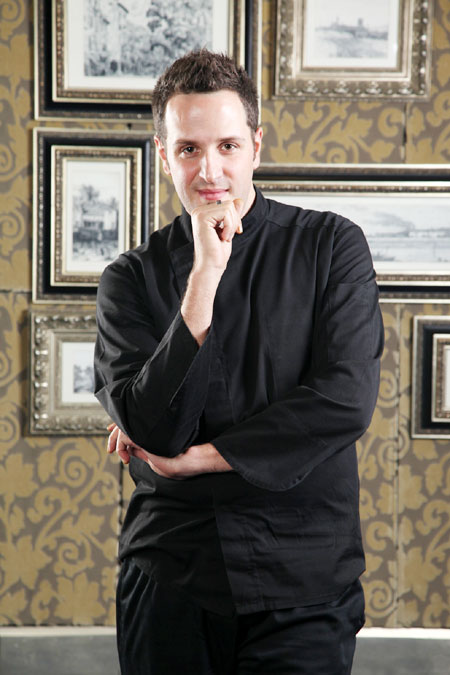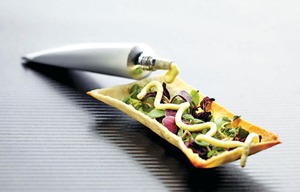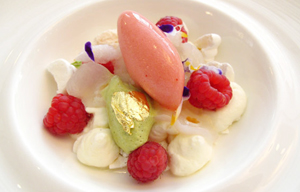Pursuing Perfection
Updated: 2013-01-06 10:54
(China Daily)
|
|||||||||||
 |
|
New chef de cuisine Michael Jakovljev at Heritage restaurant. [Photo provided to China Daily] |
It's a long hard road to culinary success if you want to go the Michelin-honored path, especially if you are young and eager. Michael Jakovljev shares his story with Ye Jun.
The new French chef de cuisine at Beijing's Heritage restaurant says the reason why he became a chef was because his grandmother had a restaurant, and he has a big family. "We always had big dinners and get-togethers. I enjoyed the pleasure of cooking and food," he says. At 30 years old, Jakovljev has recently become the new chef de cuisine at Heritage, previously Le Pre Le Notre, one of Beijing's best French restaurants. But when he first learned to cook, he was not very good.
"The first chef I met was very strict. He always said: 'You are not going to be a chef'," he recalls.
If that was bad, the worse was yet to come. At 17, Jakovljev went to his first Michelin-starred restaurant.
"It was my worst experience. We had a crazy chef who was always yelling," he says. "I went to the market at 7:30 in the morning, and worked 15 hours a day."
He began as the errand boy in the kitchen, and when his friends went to play, he had to work.
"If you don't have a passion for food, you cannot handle the pressure in Michelin-starred restaurants," he says, comparing a Michelin-star restaurant to military school. "You get less money, you work more, but you learn more."
In total, Jakovljev worked in five Michelin-starred restaurants, including the three-Michelin-star Hotel Le Mercure Europe, and the two-Michelin-star Les Trois Rois. One of the most important things he learned was precision.
"People pay money to get something different. It's perfection you try to reach. Dishes need to be consistent. Details are important," he says.
Jakovljev lists eight levels on the ladder from a commis to an executive chef de cuisine with each level taking about a year to complete. He became chef de cuisine at 26 years old.
"The best part of that learning process was to make the sauce, as a saucier," he reveals. "Because the sauce gives the taste, and makes the difference."
His secret in sauce making is good stock - good lamb reduction for lamb dishes, for example.
"For me, cooking stock is like making tea - you need to use the right bones, and good wine for wine sauce." Jakovljev makes just one liter of stock from 15 kg of bones, getting the marrow from the bones.
Related Stories
New Indian chef in town 2012-12-13 16:45
Chinese chefs get a taste of Australian beef and lamb 2012-11-26 09:10
New chef's five-course meal 2012-11-04 17:07
New Italian chef 2012-10-29 10:18
Chef Yannick: Reinventing simple cuisine, pairing it with fine wine 2012-09-29 11:07
Today's Top News
Police continue manhunt for 2nd bombing suspect
H7N9 flu transmission studied
8% growth predicted for Q2
Nuke reactor gets foreign contract
First couple on Time's list of most influential
'Green' awareness levels drop in Beijing
Palace Museum spruces up
Trading channels 'need to broaden'
Hot Topics
Lunar probe , China growth forecasts, Emission rules get tougher, China seen through 'colored lens', International board,
Editor's Picks

|

|

|

|

|

|







